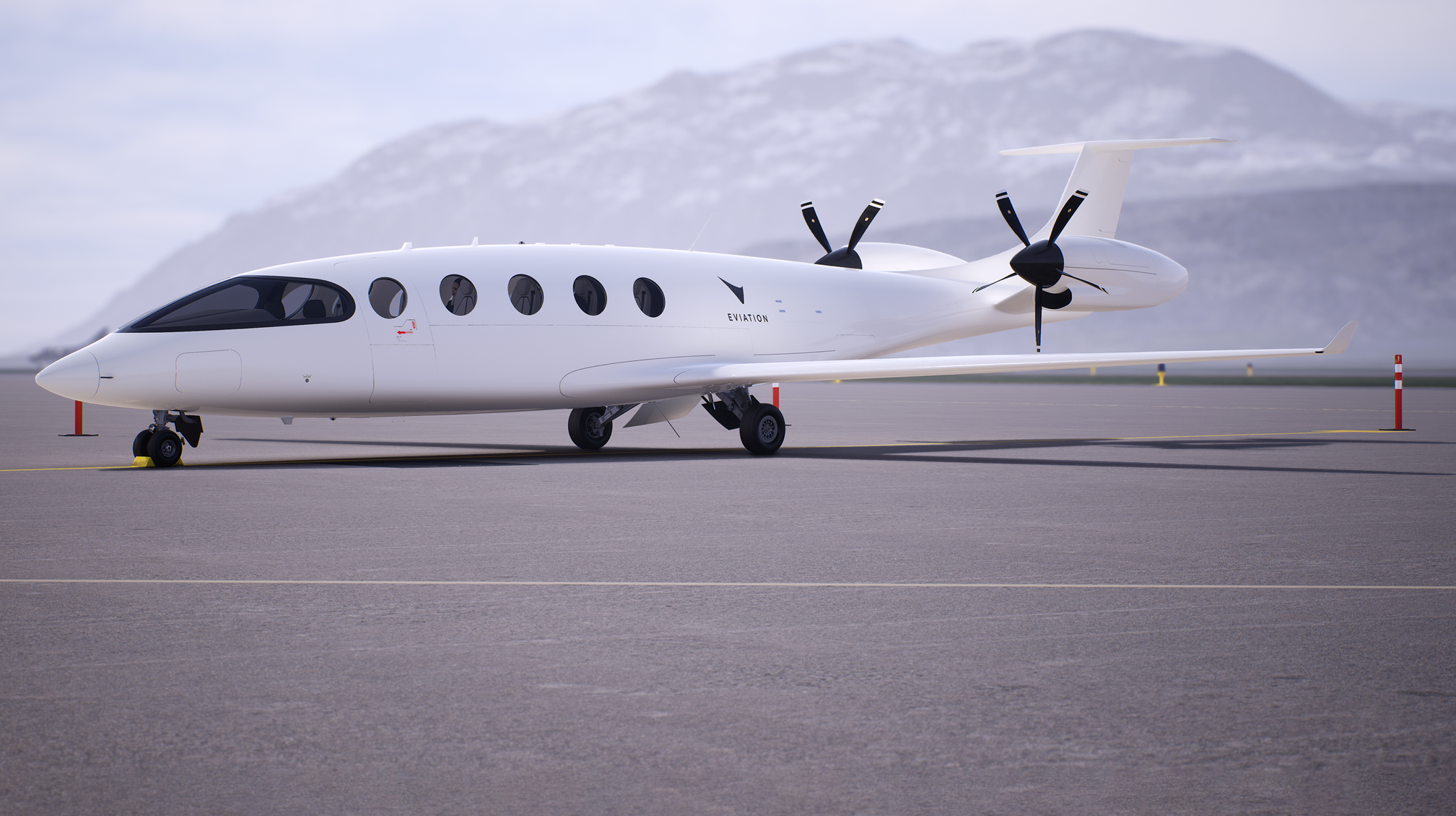First All-Electric Commuter Aircraft Is Weeks Away From First Flight
CEO wants electric planes to be "high-speed train without the rail"
The world's first all-electric passenger plane is just weeks away from taking its first flight, according to the manufacturer. The Eviation Alice has been going through low-speed taxi tests since December and is ready to move on to bigger, much faster things.
The Alice was introduced in 2019 by the Israeli company Eviation and already has orders for the cargo version of Alice from the shipping giant DHL, even though neither version have ever flown before and the company doesn't expect to take delivery until 2024. The plane's testing should have been farther along by now, but bad weather and the COVID-19 pandemic delayed testing. It went through engine testing at Arlington Municipal Airport north of Seattle according to CNN:
With battery technology similar to that of an electric car or a cell phone and 30 minutes of charging, the nine-passenger Alice will be able to fly for one hour, and about 440 nautical miles. The plane has a max cruise speed of 250 kts, or 287 miles per hour. For reference, a Boeing 737 has a max cruise speed of 588 miles per hour. The company, focused exclusively on electric air travel, hopes that electric planes that can fit 20 to 40 passengers will be a reality in seven to 10 years.
That doesn't sound like much, but these little electric planes aren't meant to haul hundreds of people long distances. Eviation CEO Omer Bar-Yohay told CNN that Alice would be more akin to a flying car than a jet (but better, because planes actually exist.)
Electric aviation proponents predict Alice and electric planes like it becoming as commonplace as any other means of transportation. "It really integrates aviation into the fabric of transportation, of our commuter life. It does so while being sustainable, and through being economically viable," said Bar-Yohay. "Once we start seeing planes like this, the entire way we look at where we live, how we commute, how we go on vacation, will change. It will be a high-speed train without the rail."
As CNN points out, the problem with getting big jets to go green is battery weight. Much like with electric cars, batteries add a tremendous amount of weight to aircraft, which the aircraft needs to over come with power, which results in more battery weight, ad infinitum. Much lighter, more advanced battery technology will be needed before electric jets can replace the big polluting planes we currently travel in. Considering planes are huge polluters and have been dosing Americans with lead-laced emissions for decades, that future can't come soon enough.
